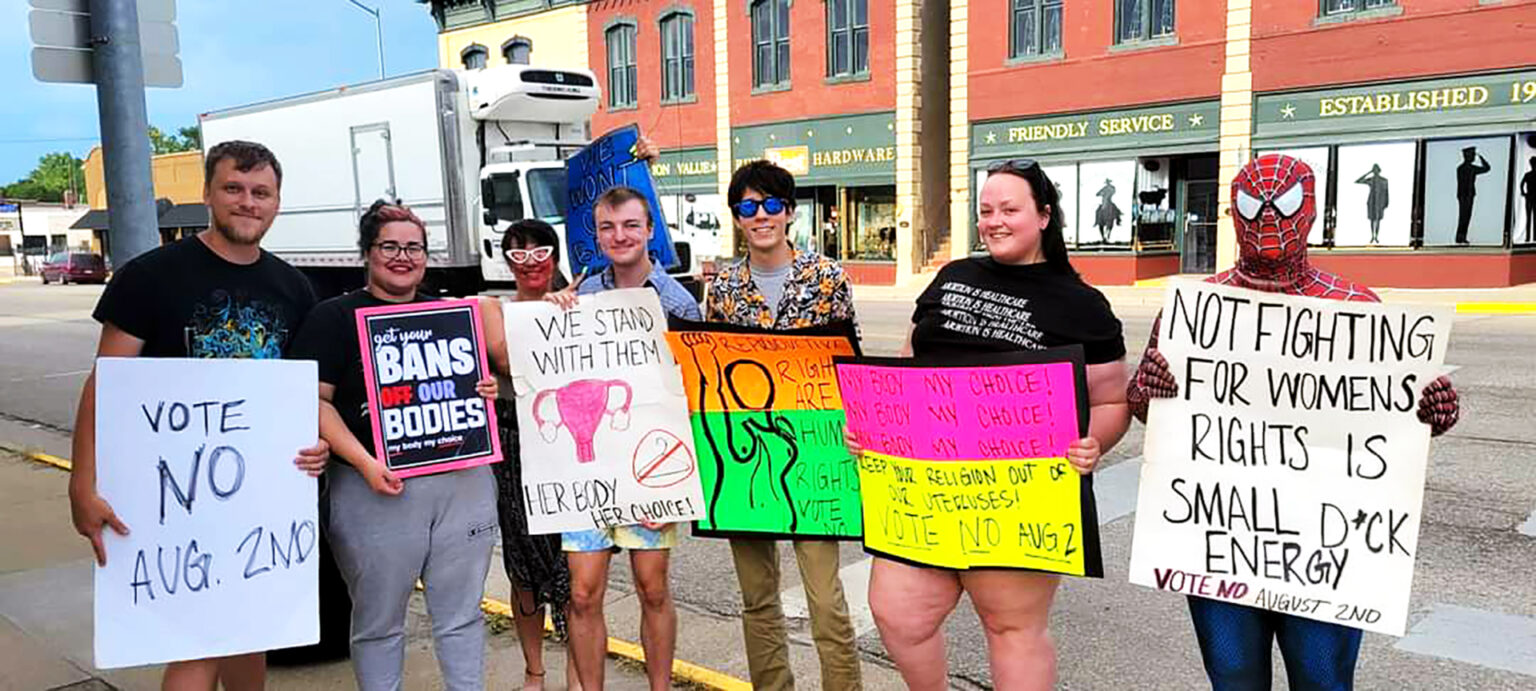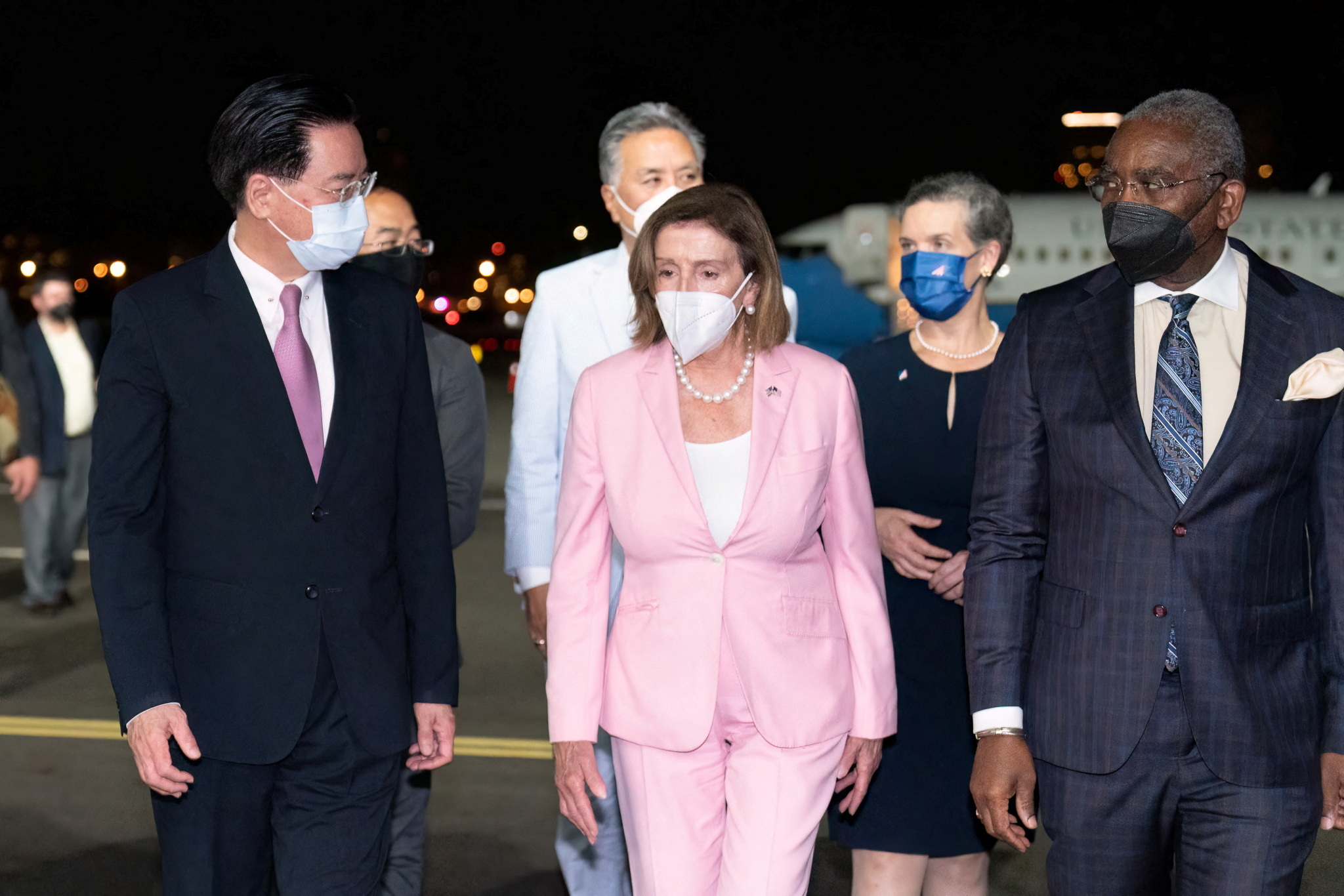From a US drone strike in Kabul to Aussie airport detection dogs snitching on smuggled breakfasts – Here’s your August 3 news briefing

A few minutes every morning is all you need.
Stay up to date on the world's Headlines and Human Stories. It's fun, it's factual, it's fluff-free.
To start off, we’re looking into:
The US kills al-Qaida leader in a drone strike

It’s been 21 years since the September 11, 2001, attacks on the US, arranged by al-Qaida leader Osama bin Laden, who was killed under President Obama’s administration in 2011. A close accomplice of bin Laden’s, Ayman al-Zawahri, helped plan the 9/11 terror attacks; he’s has been hunted by the US ever since. Al-Zawahri rebuilt al-Qaida in the Afghanistan-Pakistan region and was the supreme leader of several branches across the Middle East and Asia. He was responsible for other terror attacks in cities like Jakarta, Istanbul, London and Madrid.
On Monday, US President Biden announced that the US military had successfully killed al-Zawahri in Kabul, Afghanistan, over the weekend. Al-Zawahri was on the balcony of his safe house when a drone missile hit him. This is the first drone attack since US diplomats and troops left the country last year. Afghanistan’s Taliban government still hasn’t confirmed his death, but it did say that a strike took place, calling it a violation of “international principles.” According to the US, no civilians were injured or killed.
Kansas votes on abortion

Back in June, the US Supreme Court made a ruling that got rid of a federal constitutional right to an abortion and essentially sent the right to govern abortion back to each state to decide. This governing – which includes legislation for and against abortion access – has mostly been decided by state legislatures. But Kansas has elections today, and it will be the first time citizens vote directly on the issue in a ballot measure. The amendment on the ballot could overrule a 2019 Kansas Supreme Court decision that grants a right to abortion according to the state’s constitution.
Kansas is a pretty conservative state. There are roughly twice as many Republicans who have voted in recent elections than Democrats, so it isn’t exactly an accurate indicator of how the rest of the country will react at the polls. That said, things like turnout relative to recent years and money spent have been and will continue to be watched closely. If voter turnout is high, that could mean that people on either side of the issue are motivated to show up and vote now that it’s up to the states. If the money spent is high, that points to bigger – usually national – groups believing that the issues are politically advantageous.
One way or another, what happens in Kansas today will indicate to the rest of the US how to proceed with handling abortion access in their states.
A global trade route potentially disrupted

A crucial shipping route between Asia and the West is the Taiwan Strait, the waterway that separates Taiwan from mainland Asia. Almost half of the global container fleet and 88% of the world’s largest ships passed through this waterway this year alone, according to Bloomberg. Disruptions to the Strait would cause a major snag in the global supply chain, which has already seen its fair share of roadblocks from COVID.
Back in 1995 and 1996, China shot missiles into the Strait, messing up global shipping traffic in what’s known as the third Taiwan Strait Crisis. The US responded by sending two aircraft carrier battle groups to the area. Historically, the trigger for potential Chinese attacks on Taiwan has been any declaration of independence from the island, which China sees as a breakaway province that is still part of its territory. China’s President Xi Jinping has said “reunification” with Taiwan is a must at some point, whether through peaceful means or the use of force.
Now, US House Speaker Nancy Pelosi’s visit to Taiwan, which China has vigorously warned against, could cause the fourth Taiwan Strait Crisis. On Tuesday, China’s state media reported that Chinese fighter jets crossed the waterway. A few hours later, though, Taiwan’s defense ministry said these were false claims. Now, Taiwan does confirm that 20 Chinese military planes entered its air defense zone. The region’s defense ministry stated it is ready to dispatch forces in response to “enemy threats.”
To end, we’ll look into:
More people are signing up to be Uber drivers now than ever
For a while now, Uber has been facing a driver shortage. See, during the pandemic, people weren’t really catching rides all over the place, so demand for drivers was down. But, as things have ramped back up, there has been a shortage of drivers, which means that wait times have been longer.
Now, though, almost 5 million people are either picking up passengers or getting the McDonald’s you ordered through Uber and UberEats – that’s 31% more than there were last year, and it’s the highest number of drivers that Uber has ever had, said CEO Dara Khosrowshahi.
But Uber drivers have long claimed that they’ve not been paid fairly for their work, and rising gas prices mean they’re making even less now than before. On top of that, Uber likes to classify drivers as independent contractors so they can essentially avoid giving certain benefits like minimum wage or holiday pay. (There’s been a bit of a legal fight on this around the world, though, with mixed results.)
Still, demand for the rideshare service is up; the company said there were nearly 1.9 billion trips during the April-June period, which was up nearly a quarter from last year and 12% more than in 2019 before the pandemic shut everything down.
So, whether or not the company treats its employees fairly, people need to get from point A to point B, and Uber helps them do that.
In other news …
📉Stocks: MSCI’s gauge of stocks around the world shed 0.93%.
📰Some specifics:
- Dow Jones Industrial Average fell 1.23% to 32,396.17.
- S&P 500 decreased 0.67% to 4,091.19
- Nasdaq Composite dropped 0.16% to 12,348.76.
- Hang Seng Index slid 2.36% to 19,689.21
🧠Quick factors to bear in mind:
- Recession fears continued weighing on markets. This is especially true after several US regional Fed presidents made hawkish comments suggesting that the central bank isn’t quite done raising rates to fight inflation within its borders.
- US data released by the labor government agency showed that job openings have fallen by around 5.4%, which will also help wage inflation. More data on wages, like hourly wages, will be released on Friday (US time).
- The main thing causing angst across markets worldwide is Pelosi’s trip to Taiwan, adding more tension to Chinese and US relations. This dynamic has already been at play and weighing on the markets in the backdrop for a while, but this trip has brought it back into the spotlight.
👄Some comments and chatter:
“I do think the trip will not lead to any real economic disruption, but of course, the rhetoric and the headlines start to intensify, and it’s something we need to watch going forward. Geopolitical tension has been a theme we’ve really been seeing all year that has been weighing on markets," said Mona Mahajan, Edward Jones senior investment strategist, to CNBC.
“There is the uncertainty surrounding Pelosi’s trip to Taiwan, and there’s additional data regarding economic softness. Regarding recession, it’s not a question of ‘if’ but ‘when and how deep?'" said Sam Stovall, chief investment strategist of CFRA Research in New York.
🛢Oil: OPEC+ is meeting on August 3 (US time), which some expect will lead to no extra oil for the world because of decreased demand amid all the recession worries. With that, US crude oil prices rose 0.56% to US$94.42 per barrel, and Brent was up 0.51% at US$100.54 per barrel.
👛Bitcoin: Bitcoin is down 1.34% at US$22,963.
👎Lee’s approval: The percentage of people confident in Hong Kong’s new head John Lee is at about 45%, according to the Hong Kong Public Opinion Research Institute. Carrie Lam had 52% when she started in 2017. But she wrapped up with a 17% approval rating just before leaving office, making her the city’s most unpopular leader ever.
💉Monkeypox emergency: California has declared a state of emergency over monkeypox, following New York and Illinois.
🥴Robinhood: The company synonymous with millennial pandemic trading is in quite the pickle. Its second-quarter earnings have dropped by over half to US$202 million from US$451 million in the same quarter in 2021. It’s now letting go of a quarter of its staff in the second round of layoffs, and it’s been fined by New York state US$30 million for regulatory violations.
🐶The dogs that aren’t your best friend: An airplane passenger traveling from Indonesia to Australia snuck goodies from the Golden Arches onto their flight. More specifically, two bacon and egg McMuffins and a ham croissant were involved. Australian biosecurity detector dog Zinta sniffed out these “potential high biosecurity risk items" and snitched. The individual was slapped with an AU$2,664 fine for breaking the country’s strict biosecurity laws. That’s some expensive Macca’s.
👨🔬Expansion in Alzheimer’s research: Alzheimer’s research is expanding, with brain scientists looking more into the causes of the disease. In the past, they’ve mainly focused on how sticky plaques and tangled fibers in the brain are linked to the condition. But now, researchers are exploring factors like genes, brain injuries, clogged arteries and inflammation. This shift could help doctors develop better treatments and maybe even lead to a cure.
💻Lookin’ good on Zoom: We’re three years into COVID, and many of us still have some sort of WFH setup going on. With that, we could all use a bit of a refresher on how to look good on camera (from the waist up, at least) for the big wigs and our fellow colleagues.
- Position and angle your camera so that your peers aren’t looking up your nose or at your forehead.
- Light up your face with a smile and a … well, light.
- Test your camera and mic before you hop into the call. Smile at the camera as well, especially if it’s an after-lunch call.
- Get comfortable but stay professional. Don’t act like you’re still in your PJs and just rolled out of bed 15 minutes ago.
- Lifehack – there’s a “touch up my appearance" option in the settings. And don’t forget about your background. Make sure you’re somewhere clean or at least in a tidy space. Virtual backgrounds are also a nifty trick if you haven’t sorted your office in a while.
Written and put together by Jake Shropshire, Vanessa Wolosz, Christine Dulion and Krystal Lai




Comments ()